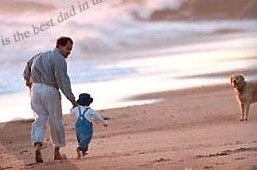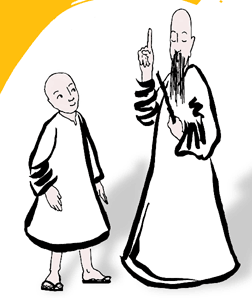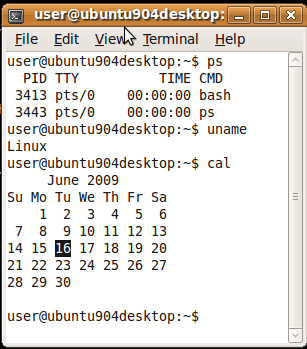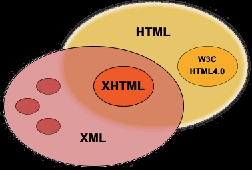![]() 2009.June.29 » Was doing good until sunset on Father's day. Then it got to me and the blues arrived. Used to resist sadness, fight it. Now I just go with it. Roll with it. Flow with it, like a canoe downstream. (Resisting and fighting just wears me out.) Been here enough times that I know the drill. No big deal.
2009.June.29 » Was doing good until sunset on Father's day. Then it got to me and the blues arrived. Used to resist sadness, fight it. Now I just go with it. Roll with it. Flow with it, like a canoe downstream. (Resisting and fighting just wears me out.) Been here enough times that I know the drill. No big deal.
 The Zen of Sensitivity & Suffering
The Zen of Sensitivity & Suffering
There's a prophetic verse in Isaiah saying Jesus was ".. a man of sorrows, and acquainted with grief." So it seems okay to be sad, tho not particularly pleasant. I get kinda numb, distant. Feel like crying.
Been reading a book on Zen a friend gave me. Interesting ideas, perspectives. For example, here's a passage I found particularly thought-provoking.
The context is about rejecting the notion that anything that doesn't involve serious effort (and usually pain-n-suffering) is somehow unworthy or worthless. But the concept can be applied in other ways. See here:
Now there do seem to be times when verve & vigor are appropriate. Times when force works with, and not against nature. As Shakespeare said, "There is a tide in the affairs of men, which, taken at the flood, leads on to fortune." [Julius Caesar, Act 4, scene 3]
But when the tide is not at flood, when mere brawn is up against granite, the effort to go against nature seems more stupid than splendid.
At best, one could say with the French general of the Charge of the Light Brigade, "C'est magnifique, mais ce n'est pas la guerre." To call it splendid is to base one's evaluation of man on his animal strength over what is more characteristically human » his intelligence.
This mis-evaluation is perhaps based on the common distrust of intelligence on the part of those who lack it, as something tricky, cunning and weak-spined. But this mis-evaluation also reduces the standards of human character until they are more applicable to pachyderms and rocks than human beings.
For after all, is the final test of character really just in seeing how much suffering you can endure? Your ability to endure depends on how insensitive you are. But being human is about, above all, being sensitive. And this means, the measure of character becomes, among other things, the quality rather than the quantity of your suffering.
Today's entry concludes in Ye Olde Rad Blog III .. see here » The Zen of Sensitivity & Suffering
![]() 2009.June.20 » Friends have long suggested I contact the newspapers (such as the LA Times) regarding the ongoing (and continuing) false accusations of child abuse being levied against me. (See previous entry.)
2009.June.20 » Friends have long suggested I contact the newspapers (such as the LA Times) regarding the ongoing (and continuing) false accusations of child abuse being levied against me. (See previous entry.)
 Desperate Measures » Contacting the Press
Desperate Measures » Contacting the Press
There have been more than a dozen accusations filed with various state agencies (including police departments in 3 different cities). All of which have been deemed "unfounded".
In the past I have contacted my Congressman and State Senator. But that seemed to do little good. (They simply forwarded my complaints to the court. Won't be voting for them, you can be sure.) So yesterday I contacted the Press.
Don't know if they will help (or know somebody who can). But I'm desperate and don't know where else to turn. This has been going on for way too long, and it's damaging my son.
Making a false police report (btw) is a crime.
Everybody familiar with the details of the case have two feelings in common:
Today's entry concludes in Ye Olde Rad Blog III .. see here » Desperate Measures » Contacting the Press
![]() 2009.June.16 » Woke at midnight .. to a disturbing dream. (Didn't get back to sleep 'til 3:30.) Mighta had something to do with the call I received yesterday .. from a detective at Newport Beach PD. (The numbers of several detectives are programmed into my cell .. all of whom contacted me first.)
2009.June.16 » Woke at midnight .. to a disturbing dream. (Didn't get back to sleep 'til 3:30.) Mighta had something to do with the call I received yesterday .. from a detective at Newport Beach PD. (The numbers of several detectives are programmed into my cell .. all of whom contacted me first.)
Or maybe it was the Restraining Order I got last week (my 3rd) .. that's preventing me from seeing my son. This stuff is emotionally exhausting.
Like any artist familiar with affliction, I didn't wanna let good angst go to waste. So I fired up the laptop and resumed my study of the UNIX shell.
 10 Points to Illuminate the UNIX Culture
10 Points to Illuminate the UNIX Culture
Somewhere 'round 2AM I stumbled upon » The Art of Unix Programming (» book at Amazon.com), by Eric Steven Raymond. (Tho I can't recall how I got there.) He's the guy who wrote How to Become a Hacker, which I quote from time to time.
In his treatment of Unix Programming, ESR uses words like culture & philosophy .. which caught my attention .. cuz I've always been fascinated by other cultures .. not so much for the better/worse comparative aspects, but rather for the mind-expanding effect one gets from truly seeing the world from another's perspective. Plus he writes well, which I appreciate. Couldn't stop reading.
Here are 10 statements/ideas I found particularly interesting and revealing. Perhaps you might also. (Minor Rad editing for brevity.)
- Unix was born in 1969. That's several geologic eras by computer-industry standards — older than the PC or workstations or microprocessors or even video display terminals.
- Few software technologies have proved durable enough to evolve strong technical cultures, transmitted across generations of engineers. Unix is one. The Internet is another. Arguably they're one and the same.
- Unix has supported more computing than all other systems combined. It has found use on a wider variety of machines than any other operating system - from supercomputers to handhelds & embedded networking hardware, through workstations & servers, PCs & minicomputers. In its present avatars as Linux, BSD, MacOS X & a half-dozen other variants, Unix today seems stronger than ever.
- Unix's durability & adaptability have been astonishing. Other technologies come and go like mayflies. Machines have increased in power a thousandfold, languages have mutated, industry practice has gone through multiple revolutions. Still, Unix hangs in there, producing, paying the bills, and commanding loyalty from the best and brightest software minds on the planet.
The part of today's entry dealing with the Unix culture continues here » 10 Points to Illuminate the UNIX Culture. The part of today's entry dealing with the call I received from the detective continues here » Woke at Midnight
![]() 2009.June.14 » Been learning the UNIX Shell, which uses a command-line interface (from a terminal) .. something I've wanted to do ever since we upgraded to the Virtual Private Server last year. (Linux is a variant of UNIX.)
2009.June.14 » Been learning the UNIX Shell, which uses a command-line interface (from a terminal) .. something I've wanted to do ever since we upgraded to the Virtual Private Server last year. (Linux is a variant of UNIX.)
 Quest to Learn the UNIX Shell (bash)
Quest to Learn the UNIX Shell (bash)
Even basic knowledge of (how to use) the Linux command line makes life administering a VPS much easier.
The Shell is simply a program that allows users (like me) to interact with the operating system (sometimes termed the 'kernel'). It can be conceived of as a 'layer' sitting between you and the operating system .. hence the term » shell.
Several shells exist, but nearly all Linux distributions come with » bash (Bourne Again Shell) .. cuz it's free, powerful and easy to use.
On my laptop I have installed a copy of Ubuntu Linux that I use to learn the shell (practice). Before jumping into learning the Shell, I figured this was a good time to upgrade my 'installation' of Ubuntu .. to the latest release (» v9.04, 'Jaunty Jackalope').
So I downloaded » this virtual machine (1.1 gig, using uTorrent). Had trouble getting it connected to the Internet, but that was due to my own inexperience with VMware, and not due to any short-comings of Ubuntu.
Anyway, I am really digging learning the Shell, cuz it's something I can use right away. For example, yesterday I upgraded the blogging software we use here at Radified (Movable Type) to the latest version (» 4.26). Something that used to take hours to accomplish was done in minutes .. (using a series of Shell commands). Beautiful.
Today's entry continues in Ye Olde Rad Blog III .. see here » Quest to Learn the UNIX Shell (bash)
![]() 2009.June.09 » XML is the foundation for several next-generation web technologies, such as XHTML, Ajax, RSS and Web Services. So it sounds like a good thing to know.
2009.June.09 » XML is the foundation for several next-generation web technologies, such as XHTML, Ajax, RSS and Web Services. So it sounds like a good thing to know.
 Learning XML
Learning XML
While HTML (the language of the web) is used to display information (how data looks), XML is used to structure & describe information (what data is).
XML is easy to learn, but comes with a set of related technologies, such as:
- XPath .. which is used to extract data from within an XML document (similar to how SQL works).
- XSLT .. a styling language which transforms an XML document/file into something else (such as HTML, PDF, ASCII or another XML file).
- XQuery .. provides advanced query functions on XML data, similar to SQL. More powerful than XPath.
- XPointer & XLink .. which work together to create hyperlinks to XML documents and to sections within XML documents (even if/when no named anchors exist, which is pretty cool).
So there's a lot to learn. (I'm about knee-deep into it.)
Since XML is just plain text, XML documents/files can be created or edited with any text editor, such as Notepad or Wordpad, which come with every version of Windows. But they provide no advanced features such as:
- line numbering
- tag completion
- syntax color coding
- checking for well-formedness
- validating XML files (against DTD & Schema)
- collapse & expand sections of code
I heard that the best (most feature-rich) XML editing software that's FREE is » Microsoft's Visual Web Developer 2008 Express Edition .. which I downloaded and installed.
Holy moly. Big download. Couple of gigs. They make you register the software, too. Took me a long time to finish everything .. after downloading all the updates (including the security patches & SP1, plus installing Microsoft's SQL Server 2008 Express).
Today's entry continues in Ye Olde Rad Blog III .. see here » Learning XML
![]() 2009.June.05 » The Bug woke extra early this morning. I was kinda hoping he'd sleep-in cuz I stayed up late last night, long after he'd fallen asleep. But no matter, he said,
2009.June.05 » The Bug woke extra early this morning. I was kinda hoping he'd sleep-in cuz I stayed up late last night, long after he'd fallen asleep. But no matter, he said, I wanna watch Harold.
 Where are my boots?
Where are my boots?
So I put on Harold, fixed him some chocolate milk & Cheerios, and figured it was a good time to grab a quick shower.
Few minutes later he came in and says (excitedly), It's raining, dad!
.. which is kinda a big thing here is SoCal, where it rains so rarely.
Next thing I know, he returned with an urgency, announcing » I gotta go poops
.. and proceeds to fill the bathroom with a wonderful aroma .. that can only be fully appreciated by those whose sinuses have been opened by the steamy mist of a hot shower. (The joys of fatherhood.)
Before running out again he says (excitedly), I'm doing the trench!
The trench is a ditch we dug yesterday .. some 10-feet long and a shovel's width wide/deep .. that we filled with water to make a » trench. In other words, you could substitute the word 'mud' for trench.
Today's entry continues in Ye Olde Rad Blog III .. see here » Where are my boots?
![]() 2009.June.01 » My driver's license was suspended today. Actually, it was suspended back in January, but the suspension didn't take effect until today. Won't bore you with the gory details, but it had nothing to do with my driving.
2009.June.01 » My driver's license was suspended today. Actually, it was suspended back in January, but the suspension didn't take effect until today. Won't bore you with the gory details, but it had nothing to do with my driving.
 Learning to Ride the Bus
Learning to Ride the Bus
So I've been researching the bus schedules here in Orange county .. and been impressed with their system.
For example, they have a trip planner, which allows you to enter a point of origin and a destination, and the planner will spit out an itinerary, which you can sort in differents ways, such as » by fastest route, fewest transfers, or shortest walking distance. Impressive technology.
I even placed a few calls today .. to ask questions about things I couldn't find on their web site, and had zero wait-time. Very pleasant people, too. Again » impressive customer support. Whoever runs that enterprise is doing a great job.
Facts I uncovered:
- OCTA doesn't use transfers.
- Costs $1.50 each time you board a bus (any bus), including those at so-called 'transfers points'. So if your trip involves a transfer, that's $3.
- Day-pass costs $4. So if your trip will involve more than 2 boardings (which they normally do), best to purchase a day-pass.
- Kids 6 and under ride free. So the Bug is good to go. (He's 4.)
- Exact change required, as drivers don't make change. (Passes can be purchased from driver.)
- Week-pass also available .. for $20. (Doesn't seem like a great deal to me.)
Today's entry concludes in Ye Olde Rad Blog III .. see here » Learning to Ride the Bus | OCTA
